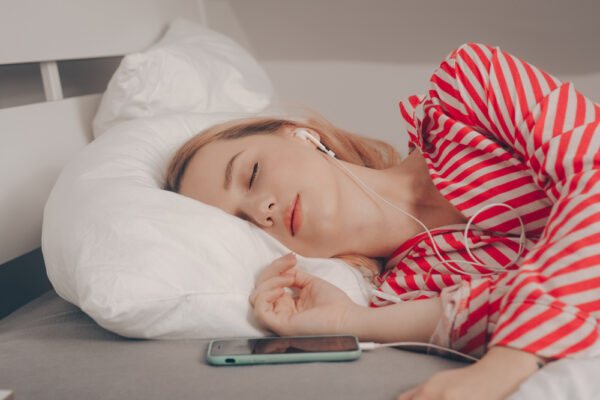You may have heard before that exercising before bed can be beneficial for your sleep, but how exactly can exercise affect your sleep?
It’s been commonly believed that exercising close to bedtime can make it harder to fall asleep as your body produces more dopamine when working out, but recent research suggests that might not be entirely true. Studies show that you can enjoy exercising before bed without necessarily compromising on your good night’s rest.
Regular exercise is actually proven to have many positive effects on your physical and mental health. It promotes relaxation, reduces anxiety and can help normalise your body clock.
In this blog post we’ll explore in more detail the benefits of regular bedtime exercises as well as when you should workout to get the optimal effect.
Can Exercise Improve Your Sleep?
Everyone knows that regular workout sessions can greatly benefit your health, from helping you lose weight to improving your heart health, but it can also have a positive impact on your sleep schedule.
Studies have found that moderate physical activity during the day can help people with insomnia as it shortens the time it takes you to fall asleep while also reducing how often you wake up during the night. Regular visits to the gym can also help you stay asleep for longer.
Additionally, a consistent exercise routine can be helpful when dealing with other sleeping disorders. Previous research has revealed that exercising can help minimise severe symptoms of obstructive sleep apnea. It can also help with battling drowsiness during the day.

Is Exercising Before Bed Bad?
Exercising close to bedtime can affect your circadian rhythm. This is your body’s internal clock, responsible for timing all processes in your body and dictating when you go to bed or wake up.
The timing and intensity of your workout can either bring forward or delay your bedtime. A well-timed, low-intensity workout can help your body relax and make you drift off to sleep faster.
However, your circadian rhythm is only one of the factors. When exercising, your body produces a larger amount of the stress hormones cortisol and adrenaline. Combined with a raised heart rate, blood pressure and metabolic rate, these hormones cause a spike in your body temperature, which can make it naturally harder to fall asleep.
So the bottom line here is the closer you exercise to your bedtime and the more physically straining your workout, the harder you may find it to fall asleep. Save the high-intensity cardio for earlier in the day so you don’t end up losing out on sleep.
When Is the Best Time of the Day to Exercise?
Now that you are aware of the effects that exercising before bed can have on your night time routine, you are probably wondering when is the best time to workout?
Sleep science suggests that there is no universal time in the day that is best to exercise if you want to improve your sleep. The optimal time to workout will depend on a combination of factors such as your chronotype, age and general health.
If you want to make a positive impact on your sleep schedule through exercise, experts recommend aiming for at least 150 minutes of moderate activity per week. This should be split into half an hour sessions five times a week.
Your body is biologically wired to be more productive during the mornings and evenings. Exercise during those periods of energy spikes is shown to improve deep sleep without having much effect on your total sleep time.
The key is finding an exercise schedule that works for your body clock. If you’re finding it troublesome to sleep when you workout in the morning, shift your gym session to later in the day. On the opposite side, if you can’t sleep when you exercise at night, then it might be better to workout earlier in the day.

Best Bedtime Exercises to Try
As we have already established, not all types of exercise have the same effect on your sleep. Which is why if your workout sessions are mostly in the evenings, it’s important to choose the right type of activities.
In general the best exercises to try before bed are the light to moderate-intensity ones. This level of activity promotes better quality sleep and may help you fall asleep faster.
The timing of your workout is also important. Aim to finish your session at least one hour before bedtime. This gives your body enough time to calm down and prepare for sleep.
Some of the exercise before bed to help you sleep better include:
- walking
- stretching
- yoga
- leisurely swimming
- light weightlifting
Avoid vigorous-intensity exercise such as HIIT, running and jumping rope.
Although previously discouraged, exercising before bed can help you fall asleep faster, especially if you’re struggling with insomnia. The key is to make sure you complete your workout at least an hour before hitting the hay.
You should also focus on lighter exercises rather than high-intensity training. Strenuous physical activity late in the evening can have a negative effect on your sleep as your body is more alert.
Overall, exercising before bed is a great way to relax and a sleep habit you should definitely include in your daily routine. Read more useful sleep related advice on our blog.


